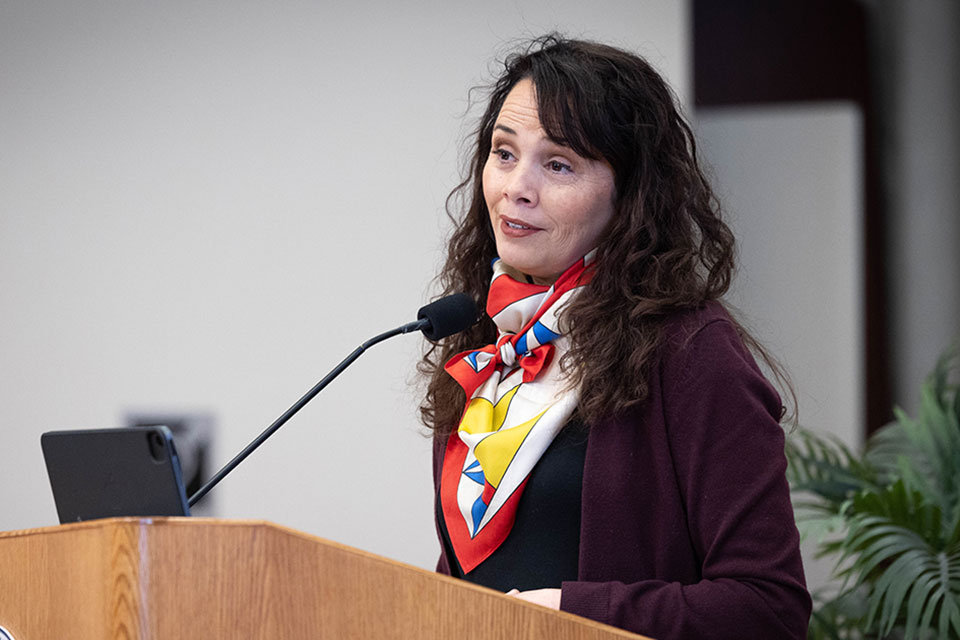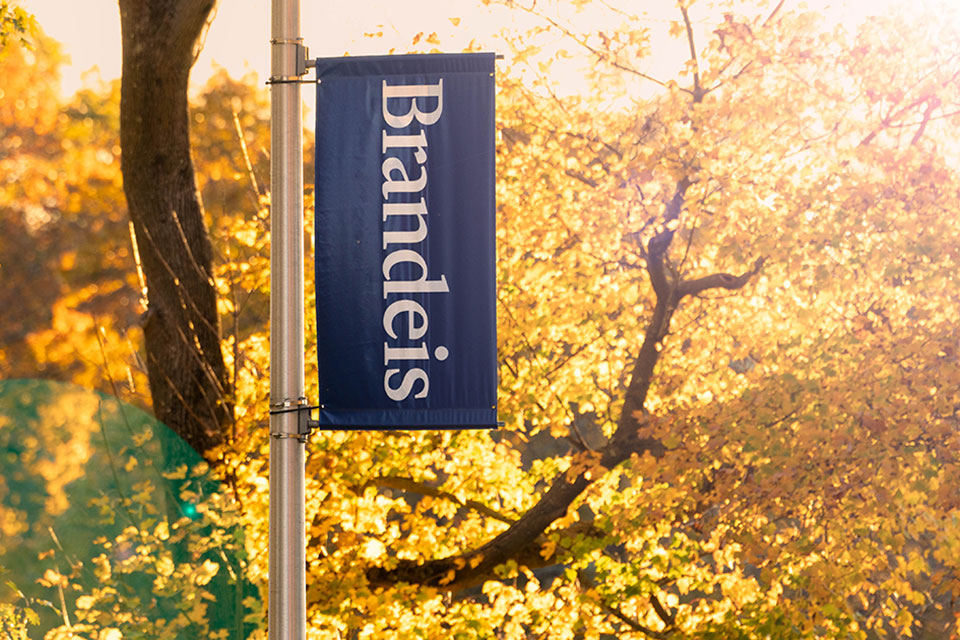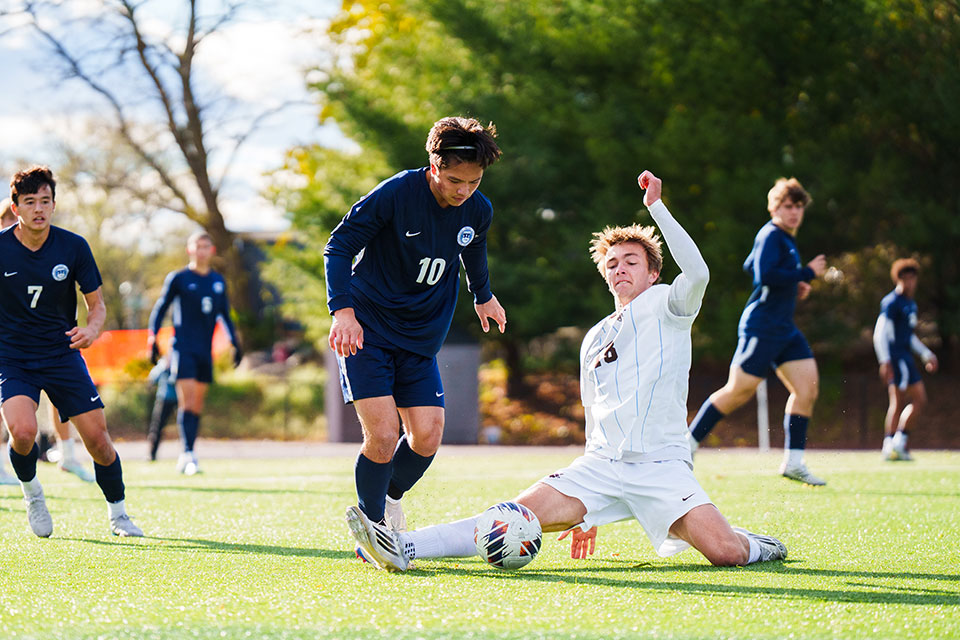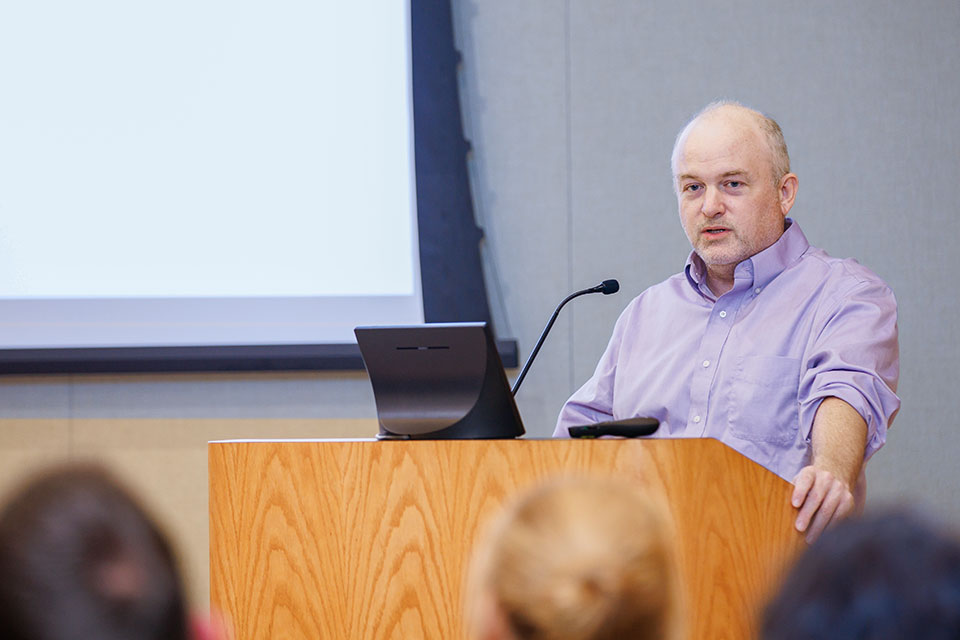Q&A: 2025 Brandeis Creative Arts Award winner Larissa FastHorse discusses her Broadway hit
“The Thanksgiving Play” will be performed throughout the weekend

November 18, 2025
Playwright and choreographer Larissa FastHorse, the 2025 Brandeis Creative Arts Award winner, will be on campus this week for a ceremony, panel discussion and a performance of her breakout Broadway hit, “The Thanksgiving Play.”
FastHorse, a member of the Sicangu Lakota Nation, is a 2025 Guggenheim Fellow, a 2020 MacArthur Fellow and co-founder of Indigenous Direction, the nation’s leading consulting company for Indigenous arts and audiences. Her satirical comedy, “The Thanksgiving Play,” debuted on Broadway in the 2022-23 season, making her the first known female Native American playwright to be produced on Broadway. The show went on to become one of the top 10 most produced plays in America during the 2023-24 season.
FastHorse will receive the award during a ceremony at 3 p.m. Friday, Nov. 21, in the Rapaporte Treasure Hall in Goldfarb and Farber Libraries; a panel discussion will follow. The Brandeis Theater Arts department will perform her play throughout the weekend.
Ahead of this weekend’s activities, FastHorse discussed her play, her views on Thanksgiving, and how she leverages her own success to “indigenize” theater.
What are your own memories of Thanksgiving? Was it ignored? Celebrated differently?
I love Thanksgiving! I mean, a holiday about gratitude is great. Which is how we celebrated it. I grew up in a time of reconciliation between the state of South Dakota and the tribal nations within the state, so we didn’t really do the Indian/Pilgrim thing. It wasn’t until I did research for “The Thanksgiving Play” that I learned the true, dark history of the holiday and the horrible things kids are made to do to celebrate. It’s never too late to learn.
What is not widely known about the origins of Thanksgiving?
So many things to choose from. I think an important one is that the holiday wasn’t created until after the Civil War, as a way to unite the states in a new holiday. Which deeply affected the way the story was told to sell the holiday for a specific purpose. Knowing the reason why something was created gives important context.
You often require at least one Indigenous actor to be cast in productions of your plays, which — spoiler alert — is the opposite of what happens in “The Thanksgiving Play.” Why is that requirement important to you?
I ask that Indigenous people play Indigenous characters. Which seems like something that should be a given, but it isn’t in theater. In this play, I put in the text that white-passing folks should be considered for white characters. That is me trying to balance things, because traditionally many non-Native folks have played Native characters. I’m quite proud that so many Native Americans have gotten their Equity insurance from this play.
Why has the play had such an impact?
I honestly think it is because it is funny. And we all love to laugh. In fact, laughter lengthens your life. It is also important to me that we laugh at everyone: No one comes out of that play unscathed. But between the laughter is a lot of new information for many folks. And some of it is wrong, because these characters are flawed and wrong. So I really ask the audience to have fun first. Then question everything. I hope that [the audience] feels inspired to do a little work to learn more after the show.
I’ve heard of a surprising number of folks who now read this play together around the Thanksgiving table. That’s amazing and makes me so happy.
What does a production have to get right to honor your original intentions?
They have to actually follow the stage directions! A college production got me to Zoom with their team and I learned that they [wanted to] cut out all of the blood from the show. Which is explicitly described in the stage directions. They said, “But we couldn’t figure out how to get rid of the blood for the rest of the play.” I replied, “You can’t. That’s exactly the point. We are living in a country soaked in blood. Yet we go on as if it isn’t there.” I told them that I could pull the play for that change. They got blood.
But also, it’s meant to be funny. I want audiences to have lots of fun.
In the play, you explore the idea of well-intentioned political correctness going too far, veering into “performative wokeness.” Is there a better way to help tell the story of Indigenous people in America?
First, don’t tell a story. Do something. Give back the land. Every one of us is profiting from stolen land. Pay it back. I’m excited to hear of more and more folks leaving their private land to tribes. If you don’t have land to return, fight for sovereign treaty rights.
Get educated about the tribes in your area. Are they there? What do they want help with? Pay your rent through service. If they aren’t there, learn why. Learn what can be done to restore them to their land. Then do it. Imagine, if even half of the people in this country fought for treaty rights, things would be so different and folks wouldn’t have to feel guilty any more.


